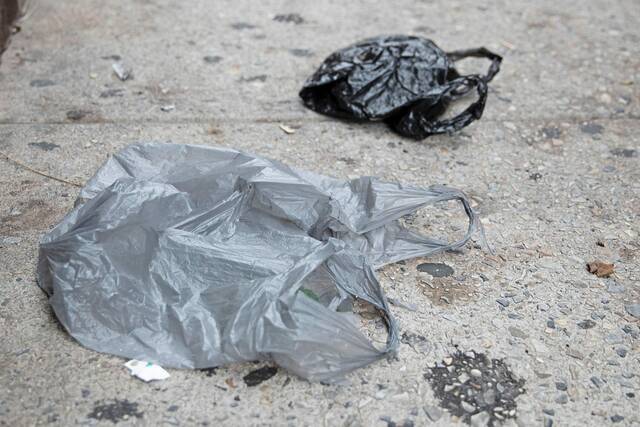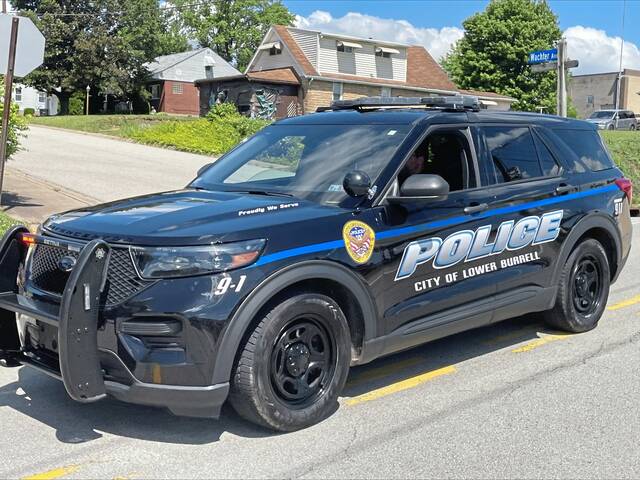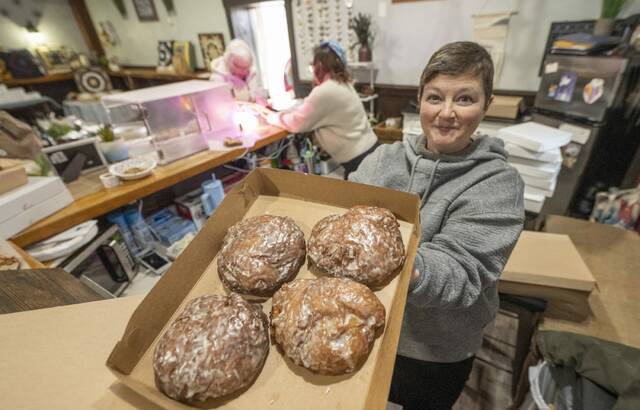Legislation calling for a ban on most single-use plastic bags was reintroduced to Pittsburgh City Council Tuesday.
The measure, originally introduced by Councilwoman Erika Strassburger in November, did not pass before the end of the 2021 legislative cycle because council members were seeking to address questions about equity, enforcement and other concerns.
If passed, the measure would ban most single-use plastic bags and implement a fee for paper bags. Customers would need to bring their own reusable bags or pay a fee of at least 15 cents for a recyclable paper bag. Retailers would use the fee to recoup the higher costs of paper bags over plastic.
The legislation includes exceptions for produce bags, meat packaging, pharmacy bags and bags used to wrap flowers and other similar items. Garbage bags and pet waste bags would also be exempt.
Several experts have voiced support for the measure, which aims to cut down on the number of single-use plastic bags being littered and the amount of harmful microplastic in the environment.
“Plastic sits in our environment for hundreds of years, if not longer,” said Ashleigh Deemer, deputy director of PennEnvironment, a statewide environmental advocacy group that supports the legislation.
Giant Eagle has publicly supported the effort. A spokesman said the retailer will “look forward to helping lead our community on this journey in the coming months.”
Though the measure was brought back before City Council on Tuesday, Strassburger said she intends to hold the bill for at least several weeks as she and other council members talk with community leaders and retailers to tackle some concerns council members still have about the bill.
“We are continuing to talk both internally and externally to see if any legislative changes are needed,” Strassburger said.
Equity is a prime concern about the legislation, which currently has no provision to offer low-income families a way to avoid the costs of purchasing reusable bags or paying a 15-cent-per-bag fee every time they take paper bags from a grocery store.
Strassburger said she is considering several possible solutions, including a fee exception for people receiving food assistance or a program that would provide free reusable bags to low-income individuals.
It’s also important to ensure the legislation is fair to retailers, Strassburger said, noting that small businesses may struggle with the added cost of pricier paper bags, especially if they aren’t able to get good deals by buying bags in bulk like bigger chains. This could be of particular concern in lower-income neighborhoods if there would be a clause added to the legislation that granted fee exceptions to some customers, meaning stores couldn’t recoup the added costs.
“There are hurdles for smaller, independent retailers,” Strassburger said, adding the legislation should not become “a threat or something that’s really going to hurt business.”
Potential solutions may include grants for small businesses or a transition period during which the city government or philanthropic partners purchase paper bags for independent retailers.
How the measure will be enforced is another question yet to be resolved, Strassburger said.
Once passed, there would be a 180-day period before it goes into effect. That gives local officials and retailers time to collaborate on efforts to educate the public about the initiative and possibly distribute reusable bags to low-income families or businesses.
There is no timetable for when Strassburger expects the legislation to be ready for a final City Council vote.
“It’s pretty clear that we just need to work until it’s done,” she said.








